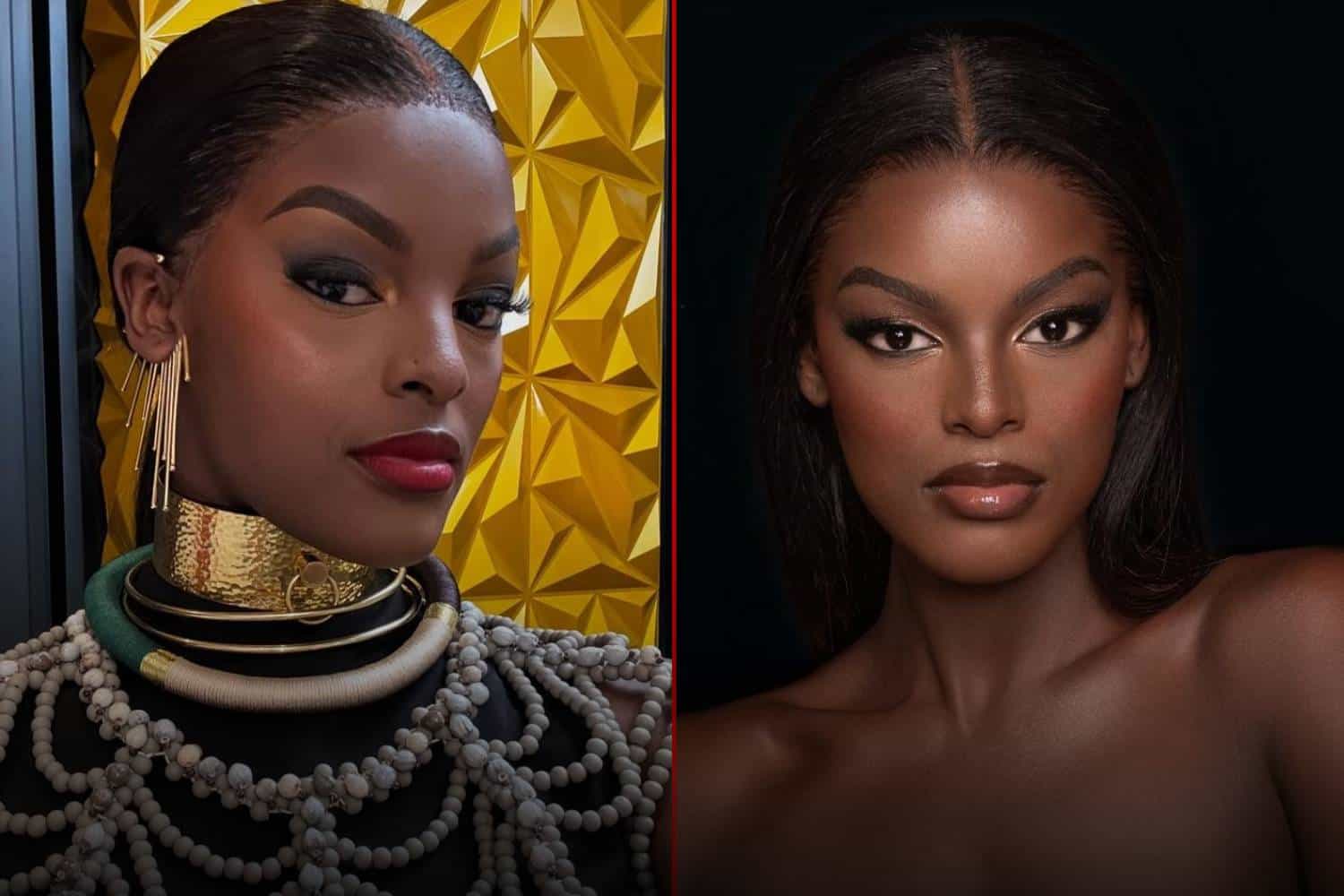- Chidimma Adetshina has made it to the Miss South Africa 2024 Top 13 but faces xenophobic backlash.
- Background information on Chidimma Adetshina and her reaction to the attacks is provided.
- The article discusses South Africa’s history with xenophobia, citing recent studies and data.
Chidimma Adetshina, a standout contestant in the Miss South Africa 2024 pageant, has reached the Top 13 finalists despite facing xenophobic backlash.
Chidimma Adetshina makes Miss SA Top 13
The Miss SA pageant is heating up, and this year’s competition has been nothing short of extraordinary.
Among the Top 13 finalists is Adetshina, who has captured the hearts of many with her poise and determination.
At 23, Adetshina is a model, netball player, and law student at Varsity College.
She hails from Soweto, Gauteng, and her journey in the pageant has been marked by her resilience and dedication, to say the least.
Adetshina’s inclusion in the Top 13 has not been without challenges.
Born to a Nigerian father and a mother of Mozambican descent at Chris Hani Baragwanath Academic Hospital, she has faced significant xenophobic backlash.
Critics have questioned her nationality and her right to compete in Miss South Africa, citing her heritage as a disqualifying factor.
Despite these attacks, Adetshina remains focused on her goal and continues to represent her diverse background with pride.
Here’s everything we know about her background
Adetshina’s background is a blend of diverse cultures and experiences.
Her parents met in Johannesburg in the late ’90s and chose to settle in Pimville before moving to Cape Town, where she currently resides.
Growing up in a multinational home, Adetshina has a deep appreciation for her heritage, which includes Nigerian, Mozambican, and South African influences.
In an interview with Sowetan SMag, Adetshina revealed that being raised in a multicultural environment gave her a broad perspective on different cultures.
“I’ve always envisioned a dream to be on Miss SA since 2017 and here I am achieving that goal. To me, being a finalist is as if I’m rewriting my mother’s dream of becoming a model. Her father didn’t allow her to do anything related to modelling, so I feel like I’m living her life which feels like a beautiful dream come true,” she revealed.
She enjoys playing netball for the Western Province and is passionate about advocating against gender-based violence and violence against women and children.
Her journey to the Top 13 has been marked by her ability to balance her academic pursuits, athletic commitments, and modelling career.
Chidimma Adetshina reacts to xenophobic attacks
Facing xenophobic attacks has been a challenging experience for Adetshina.
In response to the criticism, she expressed her disappointment over the lack of support from some South Africans.
“You try so hard to represent your country and wear it with so much pride, but all these people are not in support of you,” she said.
Adetshina highlighted that many criticisms were based on her name and background, and she felt the need to educate people about her true identity.
“I’ve gotten to a point where I don’t know what to say or not to say because this is such a sensitive topic. I don’t want to end up saying something and then offend people,” she said.
Despite the backlash, Adetshina remains determined to use her platform to educate and advocate for a more inclusive South Africa. She hopes to address misconceptions and foster understanding among South Africans.
“To be honest, I just feel that all of this is black-on-black hate as I’m not the only one in this competition who has a surname that’s not South African. I just feel like the attention is on me because of my skin colour which I think is a disadvantage… it’s also been something I had to overcome growing up,” she added.
South Africa’s checkered history with xenophobia
South Africa has a long and troubled history with xenophobia, particularly against African immigrants.
Studies show that xenophobic violence has been a recurring issue in the country, with notable spikes in attacks occurring in 2008 and 2015.
These incidents resulted in numerous deaths and displacements, highlighting the deep-seated animosity toward foreigners, often fueled by economic competition and political rhetoric.
Research indicates that xenophobia in South Africa is not just spontaneous but often organised through social media platforms.
Movements like “Put South Africans First” and “Operation Dudula” have been known to incite violence and discrimination against immigrants, portraying them as threats to local resources and safety.
These groups have used platforms like X (formerly Twitter) and Facebook to mobilise support and organise protests, demonstrating the pervasive nature of xenophobic sentiments in the country.
Despite these challenges, efforts continue to address xenophobia through education and policy reform.
Adetshina’s journey in the Miss South Africa pageant serves as a powerful reminder of the ongoing struggle against xenophobia and the need for a more inclusive society.
